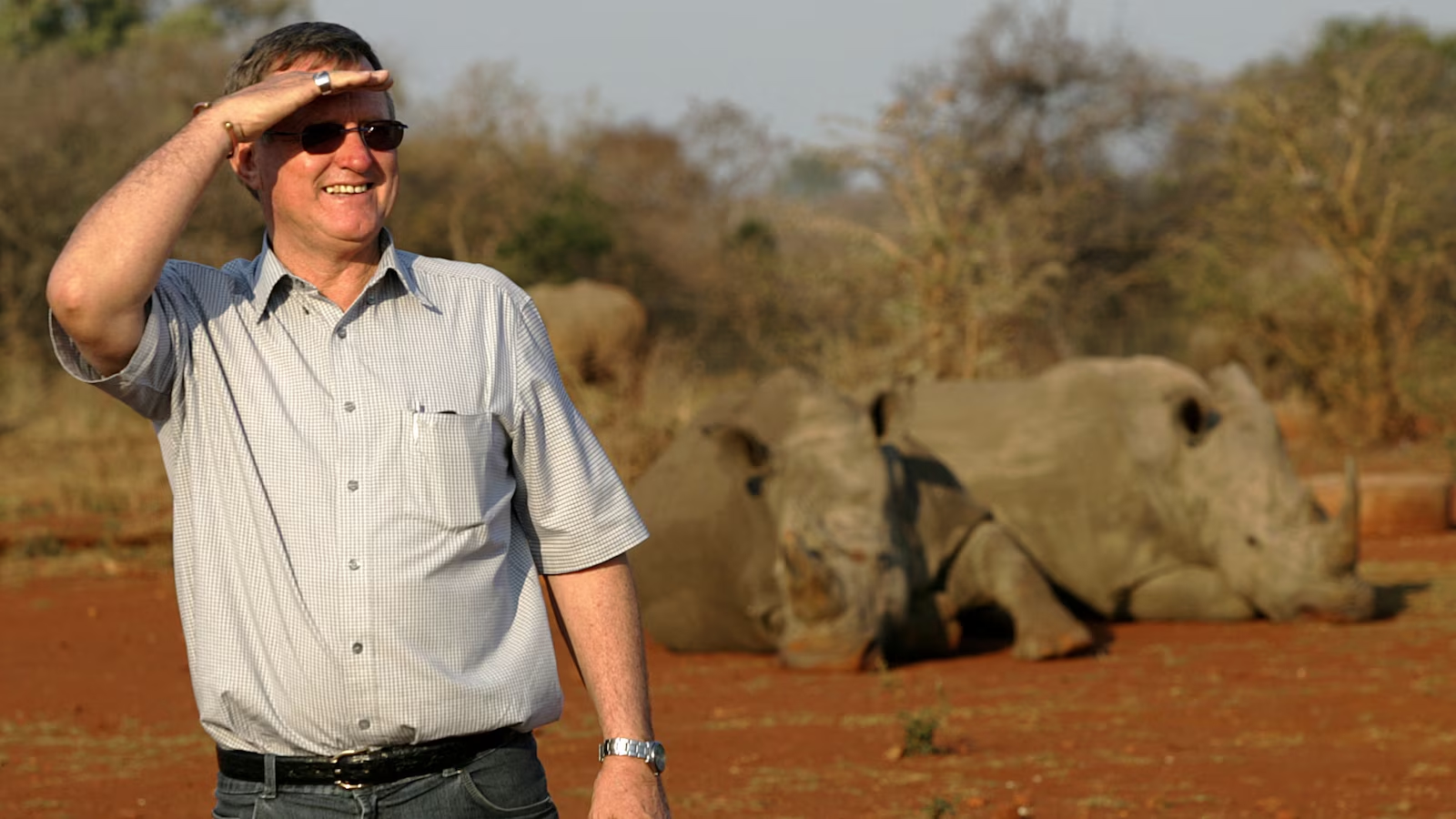
South African authorities have arrested John Hume, once the world’s largest white rhino breeder, on charges of illegally trafficking nearly 1,000 rhino horns.
The 84-year-old, long considered a pioneer of private conservation, is now at the centre of a case shaking the global debate on wildlife protection.
Hume, who for decades managed the world’s largest private rhino reserve — home to more than 2,000 white rhinos, representing nearly 15% of the global population — was arrested on 19 August 2025.
He appeared in a Pretoria court alongside five alleged accomplices and was released on bail.
His trial is set for 9 December, coinciding with the CITES Conference of the Parties in Uzbekistan, where the future of the rhino horn trade is already under scrutiny.
According to South African police, Hume is accused of orchestrating the illegal export of around 964 horns since 2017 through a vast permit fraud network.
The international trade in rhino horn remains banned under CITES, yet demand, particularly in Southeast Asia, continues to drive a lucrative black market where prices can reach $60,000 per kilogram.
Hume, who has claimed to have invested over €150 million in rhino conservation, has long advocated for a regulated, non-lethal trade in rhino horns to fund preservation efforts.
Critics, including leading NGOs such as the 30 Million Friends Foundation, argue that any form of legalization would fuel demand and intensify poaching rather than curb it.
In 2024 alone, South Africa recorded 420 rhinos killed by poachers, highlighting the scale of the ongoing crisis.
The Hume case has reignited fierce debate over the role of private conservation, with many questioning whether endangered species can truly be protected when their body parts remain such highly prized commodities.
As Hume awaits trial, his fall from celebrated conservationist to alleged trafficker raises a stark question: can the commodification of wildlife ever coexist with genuine conservation?



